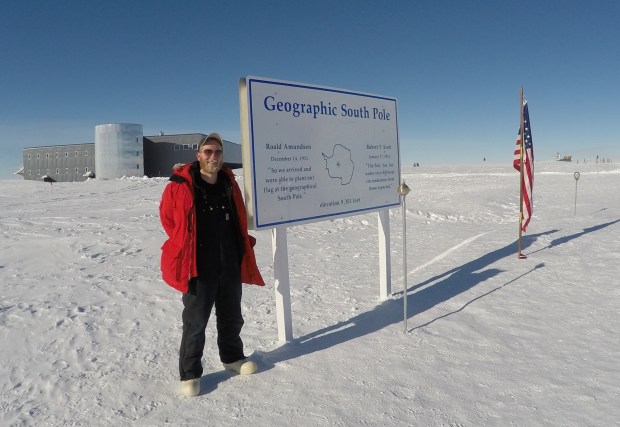Talk about a cool job.
Food for two of the three U.S. research bases located in the frozen tundra of Antarctica is procured by Elgin-based St. Charles Trading Inc., which obtains enough to feed more than 1,000 for a year, according to Vanessa Baker, the company’s marketing director.
“McMurdo Station peaks out at around 1,000 people who rotate in and out and go into the field on different science projects or support the other stations,” Baker said. “The South Pole Station maxes out at about 150 people.”
The items the company secures come from a variety of suppliers, including ADM, Cargill, Morton Salt, Riviana Rice and Kraft, she said. The items are shipped to Kaiyuh Services in California, which transports it all to one of the most remote and coldest places on earth.
St. Charles Trading has been working with Kaiyuh on the Antarctica project since 2020. All told, the effort involves ordering and transporting four metric tons of food, Baker said.
While fresh food is delivered a number of times during Antarctica’s summer — winter in the Northern Hemisphere — most things they need are obtained by the Elgin company, which was founded in 1984 and employs about 100 people.
For example, they can’t get fresh milk delivered so St. Charles Trading sends a year’s supply of powdered milk via Kaiyuh Services, Baker said.
Forecasting and planning for the food order is being done now. In May, a draft order will be sent to Kaiyuh Services.
“We have 12 weeks to bring the order into our warehouse in California,” Kaiyuh project manager Brian Eisenstatt said in a news release on the massive effort. “Once it’s all brought in, that’s when we start packing.”
Packing takes from mid-September until Thanksgiving. Goods are put into specialized food containers that are transported to Port Hueneme in California, where they are loaded onto a resupply vessel en route to New Zealand, Eisenstatt said in the release.
In New Zealand, the ship picks up a few more things before heading to Antarctica. The food should arrive at McMurdo Station on Ross Island by mid-February, where it will be warehoused. The order being readied now will be consumed from October 2024 through February-March 2025.
The items and ingredients provided by St. Charles Trading might not be eaten until 2025. All of the food from the Elgin company can be frozen, an important consideration as it’s going to be stored in a non-temperature-controlled warehouse.
“Over the winter in Antarctica, the food goes into a deep freeze and over the summer, when the sun beats down on the roof of the warehouse containing food that isn’t temperature-sensitive, it can get up into the 50s and 60s,” Eisenstatt said.
For every single researcher working in Antarctica, there are four to five support staff who are responsible for such things as cooking, cleaning, maintaining vehicles and fueling the station, he said.
“There’s so much involved in keeping that place running,” Eisenstatt said. “It is so remote. They must be very self-sustaining.”
Mike Danahey is a freelance reporter for The Courier-News.





